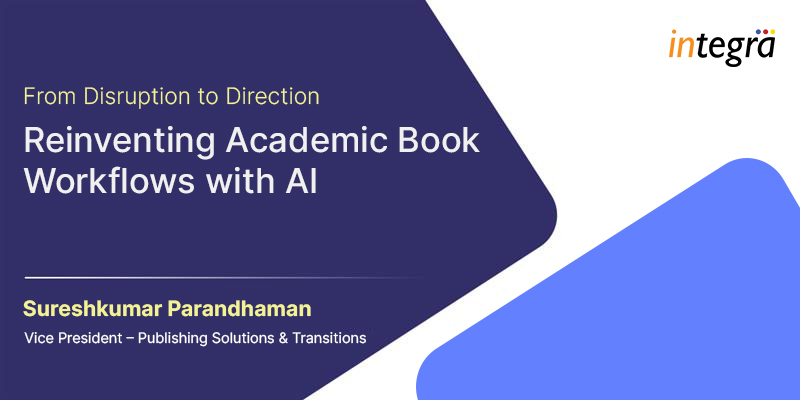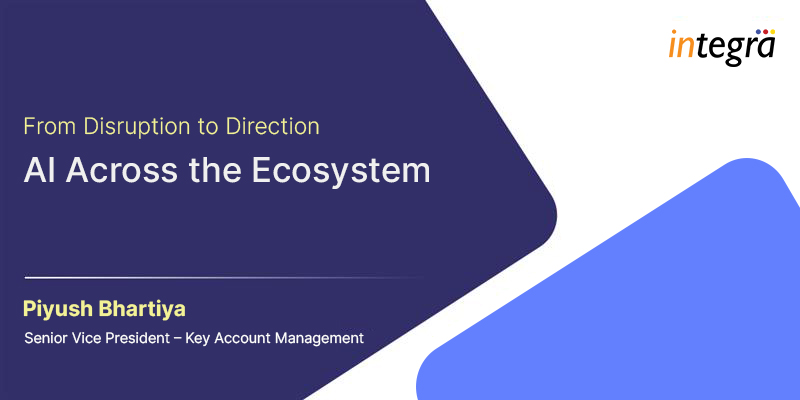Breaking Bias: AI-Powered Publishing for Ethical & Inclusive Decision-Making

In the age of rapid technological advancements, artificial intelligence (AI) has emerged as a powerful tool, revolutionizing decision-making processes across various sectors. The integration of AI into decision-making has become increasingly prevalent, from personalized recommendations on publishing platforms to automated hiring processes. AI’s ability to process vast amounts of data and identify patterns makes it an attractive solution for efficient and data-driven decision-making.
However, with this newfound power comes the potential for perpetuating biases. AI models are trained on a limited set of data and algorithms. This limitedness of sample space injects data, algorithmic, and technological biases in the decisioning models. These biases can lead to discriminatory outcomes, reinforcing inequalities and marginalizing certain communities. Addressing bias and embracing DEI are crucial steps to ensure AI serves as a force for good. The FRA suggests assessing the quality of data used to train AI models and urges regulatory bodies to ensure legislative compliance with DEI guidelines, making it even more critical for publishers to ensure DEI compliance within their processes.
In this article, we delve into the significance of leveraging AI for ethical and inclusive decision-making, exploring the challenges, promises, and applications it brings to the publishing industry.
Understanding Bias in AI Decision-Making
Bias in AI refers to the tendency of algorithms and models to favor certain groups or outcomes over others, often influenced by historical data and human biases. These biases can have far-reaching consequences, leading to unfair treatment of individuals and reinforcing existing social disparities. For instance, if an AI content curation tool favors content with gender-specific language, it may alienate readers who do not identify within those traditional gender norms. This can lead to a lack of engagement and connection with the content, hindering the establishment of an inclusive readership. Recognizing and rectifying these biases are vital steps toward creating a publishing environment that embraces diversity and ensures that all readers feel valued and included.
The Promise of AI for DEI
Despite the challenges posed by bias, AI holds tremendous promise in promoting diversity, equity, and inclusion. When designed and deployed ethically, the technology can help overcome human biases and promote fair decision-making. By analyzing vast datasets, AI can identify patterns of discrimination and aid in creating more inclusive policies and practices.
Navigating the Demands of DEI for Publishers
Publishers are increasingly becoming active participants in ensuring DEI. Recently, Penguin Random House sued a school from a Florida District for removing books that represent LGBTQ+ characters. To avoid such situations publishers can consider hiring “sensitivity readers” to ensure that their books do not have any content that could be deemed offensive by certain groups or communities. For instance, the word “Fat” was removed from Roald Dahl’s children’s books.
However, human editors are an additional cost and bring their own biases. AI-assisted DEI tools can overcome manual bias and assess the content from multiple viewpoints to ensure adherence to DEI to optimize readership.
By customizing content to readers’ language proficiency, detecting bias in language, ensuring readability, and amplifying underrepresented voices, AI can foster inclusivity, lower language barriers, and empower marginalized communities. This commitment to diversity and equity through AI-driven practices creates a more welcoming and representative literary landscape, where all readers feel valued and heard.
Ethical AI Development for DEI
To fully harness the potential of AI for DEI, it is essential to adopt ethical AI development practices. This involves being conscious of the biases that may be present in training data and striving for fairness and transparency in AI algorithms. Guidelines should be established to ensure that AI systems do not perpetuate existing biases or create new ones. Additionally, continuous monitoring and auditing of AI systems can help identify and rectify any unintended consequences.
AI Applications for Inclusive Publishing
AI-driven content curation is a game-changer for publishers catering to diverse audiences. These tools not only detect bias and non-inclusive terms, but also provide comprehensive explanations to flag and suggest changes that help authors avoid potential DEI issues. These tools assess bias or non-inclusivity of the content with state-of-the art AI algorithms. They assist in customizing content for different language proficiency levels, utilizing the Flesch Reading Ease Score for readability assessment.
By employing AI-driven readability enhancement tools, publishers can create more accessible and inclusive reading experiences, ensuring comprehensibility for all kinds of readers. These applications can redefine the publishing landscape, fostering a literary world that embraces and represents diverse perspectives with AI as a steadfast ally in promoting a truly inclusive future.
Ensuring Inclusive AI Training Data
The quality and representativeness of AI training data are critical to building unbiased AI models. Diverse and comprehensive datasets are essential to prevent AI systems from making discriminatory decisions. Strategies such as data augmentation, data anonymization, and involving a diverse group of data annotators can help reduce bias in training data, leading to more equitable AI outcomes.
AI in Language and Communication for DEI
Language plays a vital role in shaping societal perceptions and attitudes. AI language models can have a significant impact on promoting inclusive communication by avoiding harmful language and recognizing sensitive topics. As language models evolve, it becomes crucial to ensure that they incorporate diverse language representations, reflecting the diversity of the global population. By adapting to new language trends and sensitivities, AI can effectively avoid harmful language and ensure that content remains respectful of diverse perspectives. Through constant updates, AI contributes significantly to advancing DEI efforts by actively participating in the creation of an inclusive and equitable linguistic space.
In conclusion, AI has the potential to be a force for positive change in promoting diversity, equity, and inclusion. By addressing bias in AI decision-making and prioritizing ethical AI development, we can harness the full potential of AI for the greater good. The publishing industry, in particular, stands to benefit from AI applications in content curation and inclusive practices. Embracing AI-driven solutions while being mindful of their implications can usher in a new era of ethical and inclusive decision-making, creating a more just and equitable world for all.
To further explore these possibilities, contact Integra to learn more about iDEI, an innovative AI tool developed to promote DEI in text while enhancing content readability. Embracing AI in this journey signifies a commitment to fostering a literary world that embraces diverse voices and values.
Recent Blogs

Research Integrity vs. Publication Integrity: Clarifying Responsibility in Scholarly Publishing

From Disruption to Direction: Reinventing Academic Book Workflows with AI


